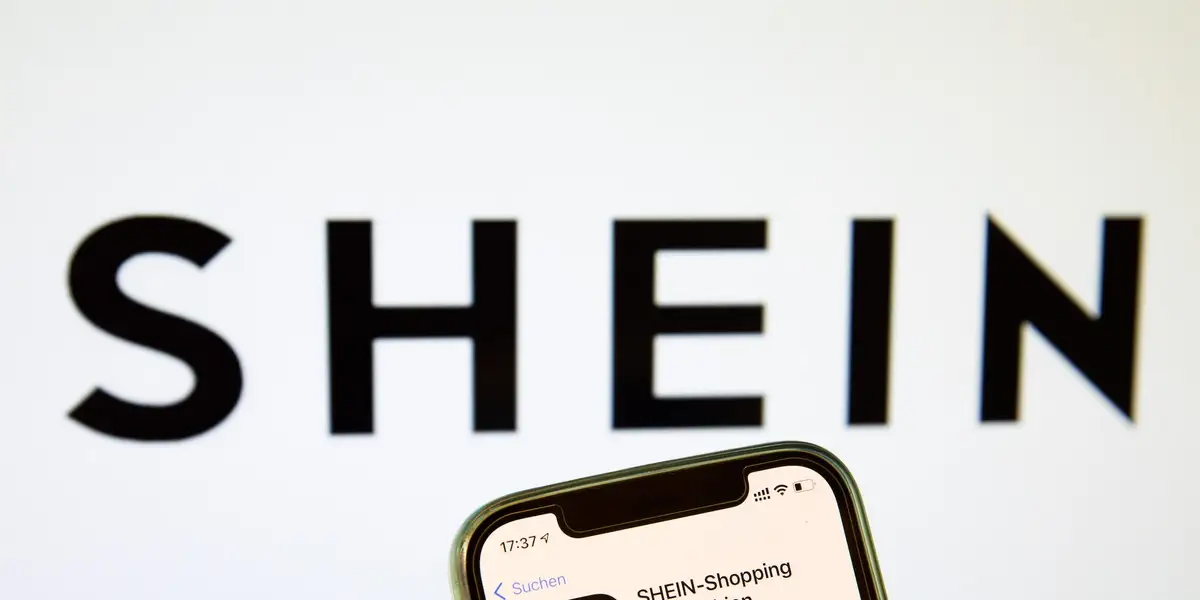Shein’s ambition to go public is well-known, but the fast-fashion giant must go through a series of significant obstacles to win over Wall Street.
The company gained immense popularity during the Covid-19 pandemic as shoppers worldwide were drawn to its trendy designs, vast selection, and extremely low prices.
With a reported valuation of $66 billion, Shein has appointed former Bear Stearns investment banker Donald Tang as its executive chair and public representative.
As Shein seeks to transition from a budget T-shirt retailer to a global powerhouse capable of competing with established retail giants, a public offering has been a long-anticipated goal.
However, as it aims to conclude its rapid rise with a U.S. market debut, its aspirations face complications due to its Chinese origins and various allegations against it, including the use of forced labor in its supply chain, labor law violations, environmental harm, and design theft from independent artists.
Shein is actively working to address these concerns and demonstrate to U.S. regulators and Congress that it is trustworthy enough to go public in the U.S., where scrutiny of companies with Chinese ties has increased.
The company is under growing pressure from lawmakers, including an investigation by the newly established House Select Committee on the Chinese Communist Party, and finds itself entangled in the U.S.-China geopolitical rivalry.
“IPO investors currently seek a clear narrative,” Matt Kennedy, senior IPO market strategist at Renaissance Capital, told. “Some potential investors may choose to avoid the deal entirely until these issues are resolved.”
If Shein can successfully overcome these challenges while maintaining its successful strategy, it could achieve significant success on Wall Street, according to a longtime retail advisor who spoke anonymously due to their lack of authorization to discuss specific companies publicly.
“Despite the negative press and publicity, Shein has shown remarkable innovation in its product production,” the advisor said. “This indicates they have valuable insights that other retailers could learn from. They need to address these issues while preserving their compelling business model to succeed.”
Shein has stated it has not filed for an IPO and currently has no plans for a public offering, although reports suggest that an IPO could be possible as early as 2024.
Since May, the House panel has been investigating Shein following expert testimony suggesting the company sources cotton and other materials from China’s Xinjiang region.
Due to evidence of genocide, torture, and forced labor against the Uyghur ethnic group in Xinjiang, U.S. lawmakers banned the import of cotton and other products from the region in 2021. Critics argue that a tariff law loophole known as de minimis allows such items to bypass U.S. customs oversight.
Under this provision, packages valued under $800 are not subject to import duties or thorough customs inspection, allowing items from banned regions to enter the U.S.
Unlike traditional retailers that import large merchandise batches for U.S. warehouse distribution, Shein often ships products directly to American consumers via its Chinese suppliers.
The committee is investigating concerns that Uyghur forced labor is being used in Shein’s supply chain, potentially evading detection due to the de minimis loophole. Similar investigations are ongoing for companies like Temu, Nike, and Adidas.
The committee reported in June that “the vast majority of products” Shein ships to the U.S. “are less likely to face the same level of customs scrutiny” as other retailers. The investigation into Shein’s supply chain remains ongoing.
In response to the investigation, some Shein executives have visited the company’s Washington, D.C. office to meet with lawmakers and address their concerns.
“As a company that adheres to all local laws, we will cooperate with any investigation and provide requested information,” Marcelo Claure, Shein’s new group vice chair and former SoftBank CEO, told.
Regarding allegations of forced labor, Claure stated that he does not “believe those allegations are correct” and that there is “no such thing as forced labor” in the manufacturers he has visited in China.
Nevertheless, Shein has acknowledged that some of its cotton came from Xinjiang, as detected by Oritain, a third-party firm specializing in tracing cotton fibers.
Oritain works with major retailers including Target, Costco, and Ralph Lauren. On average, 13% of Oritain’s cotton tests show problematic regions.
Shein reported that as of July, 2.1% of its cotton tests indicated unapproved regions, and production of affected products was halted. The company has not shared test results beyond July but stated they have remained consistent.
Shein pointed out that its positive test rate is lower than the fashion industry average, but it strives to reduce this rate to near zero and has committed to discontinuing the use of Chinese cotton. Experts note that most Chinese cotton is sourced from Xinjiang.

However, forced labor risks can persist throughout the supply chain. Chloe Cranston, head of thematic advocacy programs at Anti-Slavery International, explained that forced labor risks extend beyond cotton sourcing to other stages of production.
Shein relies on numerous contracted manufacturers in China, and workers at these factories might be there under state-sponsored labor transfer programs.
“It’s not just about where the cotton comes from; it’s about how it’s processed and turned into the final product,” Cranston said. “Oritain and similar companies are part of the solution but not the complete solution.”
In response, Shein stated that internal auditors and third-party firms conduct regular, unannounced audits of its manufacturing facilities to ensure compliance with labor laws.
In 2022, 11% of audits found “zero tolerance violations,” such as child labor and forced labor, leading to the termination of 28 suppliers.
However, these audits covered only a fraction of Shein’s supply chain, examining 1,941 out of approximately 5,400 suppliers. These audited suppliers represented about 85% of Shein-brand products by procurement value but less than half of its total suppliers.
Shein plans to increase its audits this year to cover 90% of Shein-brand products by procurement value.
As Shein works to improve its reputation amid growing geopolitical tensions between the U.S. and China, it emphasizes its base in Singapore rather than its origins in China.
While Shein was reportedly founded in Nanjing, China, in 2008, the company officially traces its origins to 2012. It registered its headquarters in Singapore in 2019 and has been based there since 2021. Reports suggest the company de-registered its original Nanjing entity in 2021.
Shein’s move to Singapore and its expansion outside of China could facilitate its IPO, according to Shang-Jin Wei, a professor of Chinese business and economy at Columbia University.
By importing and exporting significant quantities of products through China, Shein could maintain favor with Chinese authorities while finding way out of foreign investment restrictions, Wei explained.
“If Shein can convincingly claim it’s not a Chinese company, it will reduce sensitivity in the U.S. At the same time, if it claims not to be Chinese, it might also avoid certain Chinese regulatory requirements,” Wei told.
Despite the move to Singapore, concerns persist about Shein’s close ties to China, with fears that data about American customers could be accessed by the Chinese government.
Montana’s Attorney General Austin Knudsen expressed skepticism about the efficacy of Shein’s move to Singapore in mitigating these concerns.
“If the Chinese Communist Party demands information or cooperation, companies will likely comply,” Knudsen said. “Being based in Singapore does not alleviate these concerns.”
Wei also acknowledged that Shein’s dependence on Chinese suppliers presents a risk.
“If the Chinese government wants to limit Shein, it has many ways to do so as long as Shein relies on China-based suppliers,” Wei said.
Regarding data security, Shein stated that it stores U.S. data in Microsoft and Amazon’s cloud services within the United States.
The company declined to comment on whether it would be subject to Chinese securities laws if it sought offshore investment. It was also unable to clarify whether its CEO, Sky Xu, remains a Chinese citizen but confirmed he “resides in Singapore.” Xu is also known as Chris Xu.
When asked whether China considers Shein a Chinese company, Claure said he was unsure.
“I’ve invested in global companies for many years, and I would consider Shein to be one of the most global companies I have ever been involved with,” Claure said.
Shein faces additional challenges with frequent copyright infringement lawsuits, alleging the company steals designs for its products. In July, three designers sued Shein, claiming its infringement is so extensive it amounts to racketeering.
Claure responded that Shein has a “zero tolerance policy” for copyright infringement but acknowledged that “mistakes do happen.” If the company discovers infringement, it “immediately” halts production of the infringing item.
A Shein spokesperson added that the company takes disciplinary action against designers and manufacturers involved in infringement and allows artists to submit takedown notices for suspected copies.
Shein uses image-recognition technology to detect potential infringement and conducts manual reviews.
In addition to legal troubles, Shein faces criticism for its fast-fashion model, which often leads to garments ending up in landfills after minimal use. Consumer concern about sustainability is growing, and Shein’s practices are frequently criticized.
“We see that younger generations are increasingly concerned about environmental issues,” said Sonia Lapinsky, a partner and managing director at AlixPartners. “Despite this, some retailers with poor sustainability practices still perform well.”
If Shein goes public, upcoming SEC rule changes will require it to disclose its greenhouse gas emissions. While the retailer has already provided this information in its 2022 ESG report, it remains unclear how environmental concerns impact sales.







Leave a Reply